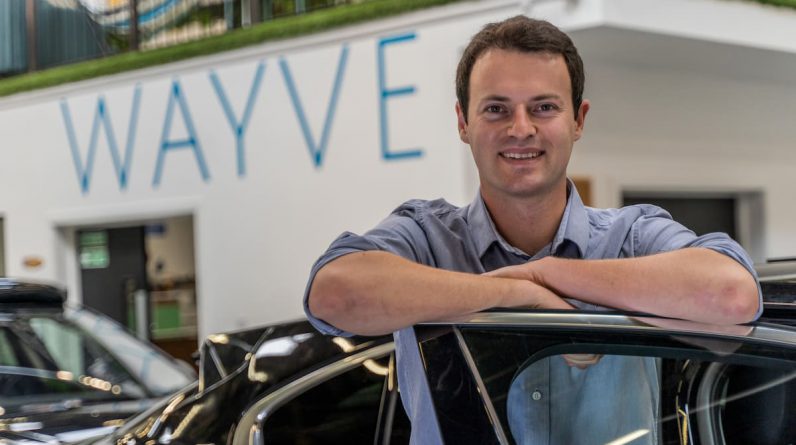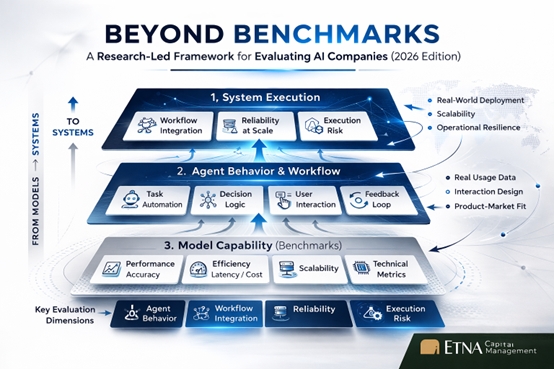
Alex Kendall: “The full potential of AI is when we have machines that are in the physical world that we can trust.”
Wayve, a London-based start-up co-founded and led by Auckland University engineering grad Alex Kendall, has raised US$1.05 billion ($1.7b) to further develop its groundbreaking AI tech for self-driving cars — which it is
negotiating to sell to major car makers to incorporate as the “brains” of their vehicles.
Like another Kiwi in London, Flower founder Nic Lane who raised $32m for a new way of training AI, Kendall is carving a new path for the technology rather than being just another bandwagon jumper.
Whereas most self-driving tech start-ups have systems that react to data from sensors with set patterns, Wayve uses AI that learns to drive like a human, using machine learning to analyse the behaviours of real drivers.
Unlike generative AI models, which create human-like text and images and are being developed by OpenAI, Google and Anthropic, the “embodied AI” systems made by Wayve serve as the brains for physical objects, be they cars, robots or manufacturing systems. The AI allows a machine to make real-time decisions on its own.
![A driver using Wayve's tech for hands-free driving. The tech has been trialled on UK public roads since 2018. Photo / Wayve]() A driver using Wayve’s tech for hands-free driving. The tech has been trialled on UK public roads since 2018. Photo / Wayve
A driver using Wayve’s tech for hands-free driving. The tech has been trialled on UK public roads since 2018. Photo / Wayve
The Series C round was led by Japanese venture capital firm Softbank, with AI powerhouses Microsoft and Nvidia also chipping in, along with Yann LeCun, Meta’s chief AI scientist. A valuation was not disclosed. Microsoft and Nvidia also supported a US$200m Series B raise in 2022.
The firm’s first series raise was a US$20m Series A in 2020 supported by Sir Richard Branson. Kendall told the Herald that, at the time, he was working trapped in NZ by pandemic border restrictions, working nocturnal hours to match his London team’s workday.
Staff numbers have tripled to 300 since the Herald last caught up with Wayve in 2022.
Into AI before the craze
Christchurch-raised Kendall, a Christ’s College old boy, went to Auckland University where he graduated with an honours degree in mechatronics engineering after skipping the first year.
AdvertisementAdvertise with NZME.
He then won a Woolf Fisher Scholarship research fellowship to Trinity College, Cambridge, where he completed a doctorate in deep learning, computer vision and robotics in 2017 – the same year he co-founded Wayve, where today he is chief executive.
As a side gig, he served as a scientific adviser to London-based AI start-up Scape Technologies, a maker of “city-scale localisation with computer vision” 3D mapping technology that was acquired by Facebook for a reported US$40m in late 2019.
Related articles
Matthew Scarborough, who became friends with Kendall at the University of Auckland’s engineering school and also moved to London (albeit for a job in investment banking rather than tech), and is still close mates, told the Herald that Kendall stood out as “a near-genius — always the smartest guy in the class yet understated.”
He said this morning, “It’s remarkable how humble he’s remained.”
Companies focused on autonomous driving are facing a bumpy period. The technology is expensive and difficult to build and faces intense regulatory scrutiny. Cruise, the General Motors self-driving subsidiary, removed its driverless cars from the road last year amid safety and legal concerns. Apple recently abandoned its self-driving car efforts after years of development.
Wayve has tested its technology on British roads since 2018 and will soon expand elsewhere. The software takes advantage of cameras, sensors and other modern car technology to see and react to various driving environments. Data collected as the car navigates a town or city is fed back into the AI system to help cars learn.
The approach differs from other autonomous vehicle developers such as Waymo, owned by Google’s parent company Alphabet. Wayve said its technology doesn’t rely as heavily on high-definition maps or lidar sensors, a laser tool used for measuring distance and detecting objects. Tesla has used an approach similar to Wayve in recent years.
Another Auckland University engineering grad, Jeff Hawke, served as Wayve’s VP of technology before leaving in February last year for a stealth start-up.
AdvertisementAdvertise with NZME.![A Ford Mustang Mach-E equipped with autonomous vehicle equipment by Wayve, which is developing self-driving AI tech that it plans to license to car markers. Photo / Wayve]() A Ford Mustang Mach-E equipped with autonomous vehicle equipment by Wayve, which is developing self-driving AI tech that it plans to license to car markers. Photo / Wayve
A Ford Mustang Mach-E equipped with autonomous vehicle equipment by Wayve, which is developing self-driving AI tech that it plans to license to car markers. Photo / Wayve
“The full potential of AI is when we have machines that are in the physical world that we can trust,” Kendall said.
Wayve has been building software to explain in plain English why a car made a certain driving decision, such as why it stopped suddenly or slowed down — a layer of transparency to help win over regulators.
Kendall said vehicles kitted out with Wayve’s technology had navigated lights, roundabouts, multi-lane roads and other obstacles in testing carried out in six UK cities — London, Cambridge, Manchester, Leeds, Liverpool and Coventry.
The investment from SoftBank and others would allow the company to turn its research into a full commercial product. He said Wayve was negotiating with several large automobile manufacturers to get its software in cars available to purchase, but declined to name them.
With reporting by the New York Times.
Chris Keall is an Auckland-based member of the Herald’s business team. He joined the Herald in 2018 and is the technology editor and a senior business writer.
Originally Appeared Here











